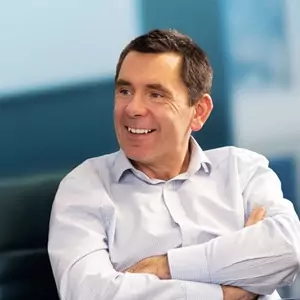Gerard Reid is one of the leading experts on energy transition issues, is also active as an investor and author of a popular blog.
“Europe must aim to become energy independent, to have a system that is clean and resilient, and this is its main challenge, and to do this we must focus on electrification,’ Reid tells Startupbusiness. ‘This applies to all aspects, mobility for example, but the real impact is on the transition process of heating systems, we have to get off gas, but how can we do this? By relying on three things: solar, batteries and highly efficient, high-tech control systems, which involves investment in semiconductors’.
Solar is fundamental because it is a simple technology that comes to market very quickly, it is easy and quick to install, and it has lower and lower costs, in the last month alone they have fallen by 15%. Batteries, which are already virtually everywhere, are undergoing a continuous process of evolution that has already developed strongly and continues to improve, control systems are the field in which Europe can make a difference because it has experience and expertise in the field, we need to focus on digital systems for management and also make use of the Artificial intelligence, however, reminds Reid, ‘consumes a lot of energy, so it is crucial to bear in mind that more and more energy will be needed, We see what is already happening in the USA where some, in order to meet this growing demand for energy, have even proposed to reopen decommissioned nuclear power plants’. There is recent news of the plan to reopen the Three Mile Island nuclear power plant, which in 1979 was the protagonist of one of the most serious accidents in the history of nuclear power; the idea is to reactivate it to produce the energy needed to power the AI systems of the big giants, starting with Microsoft.
The three elements that Reid indicates as the main ones: solar, batteries and control systems, can also be supported by other sources but no alternative has the same properties, for example, says the expert, nuclear power will be important but not the majority and is certainly not as scalable as solar: ‘in history there has never been a nuclear power plant project that has been built on time and on budget while solar has costs that continue to fall significantly, we must focus on solar, building a nuclear power plant takes ten years, solar panels are installed very quickly’.
This choice also has a significant social and educational impact as it helps to raise people’s awareness of the transition process: ‘we need to make everyone more aware and solar panels help because they are everywhere, people can see them, they know they have them on the roofs of their houses, they are close and this proximity, unlike a power station that is far away and cannot be seen, helps to better understand the cycle of energy production and consumption. This is also important to develop the element of efficiency, i.e. the use of intelligence that reduces waste, which together with clean production is fundamental to achieving the goal of energy independence and reducing emissions’.
Finally, Reid emphasises how the role of start-ups is crucial in this process: ‘we have to keep accelerating, the speed of change has to accelerate, and start-ups are able to bring not only new technologies but also new business models, new ideas, new ways of executing to speed up the adoption of new technologies. The energy transition is a triggered process and it is accelerating and it is not even conceivable to slow it down or stop it, and everyone is involved: the users, the operators, the manufacturers who must therefore embrace innovation’. (photo is taken from the website of Alexa Capital of which Reid is co-founder and partner).
ALL RIGHTS RESERVED ©
